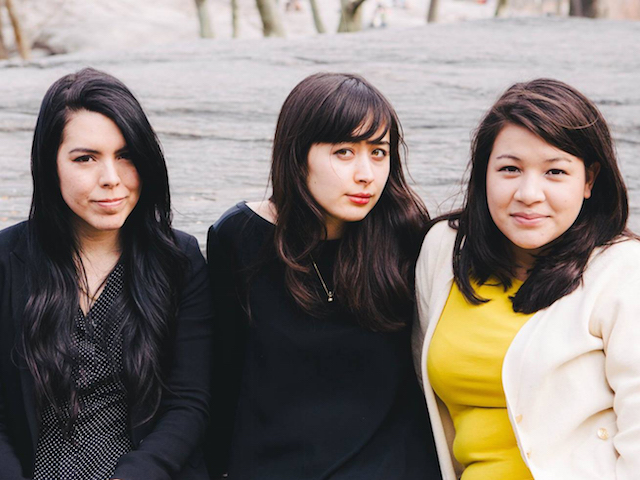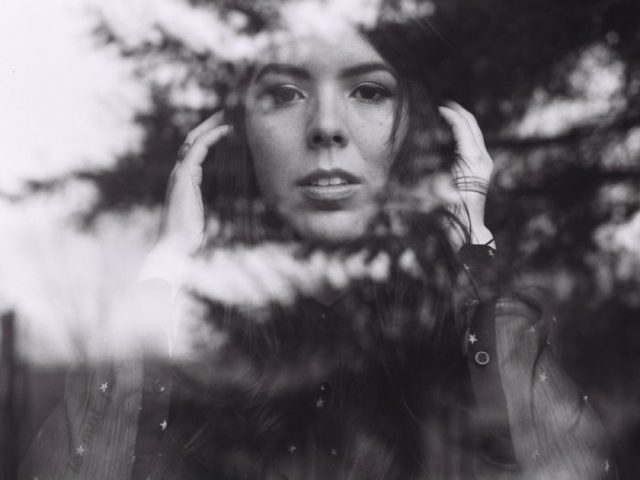Trying To Recognize People Like MePosted in Articles, Asian Diaspora, Autobiography, Literary/Artistic Criticism, Media Archive, United States, Women on 2019-07-25 01:01Z by Steven |
Trying To Recognize People Like Me
The Margins
Asian American Writers’ Workshop
2017-06-16
 (from left to right) T Kira Madden, Rowan Hisayo Buchanan and Violet Kupersmith |
Writers Rowan Hisayo Buchanan, Violet Kupersmith, and T Kira Madden speak to each other about mixed-race identities in life and literature
February 28 isn’t too cold. I hurry through sharp sunlight to a café in Lincoln Center. It is the official launch day of my novel, Harmless Like You, in the USA. I feel woozy and anxious. I’ve been avoiding bookshops, because I’m too scared to know if it’s in stock. I’m meeting two dear friends who are also writers. T Kira Madden is the Editor in Chief of No Tokens Journal, with her memoir forthcoming. Violet Kupersmith’s collection of stories The Frangipani Hotel was published by Speigel & Grau, and her novel is forthcoming. They are both dear friends of mine, and it has been too long since I’ve seen their faces. The other thing we have in common is that we are mixed-race. Specifically, we have one Asian parent and one white parent. I’ve been told that equals accessible exotic. I want to ask Violet and Kira how they deal with this and how it affects them as writers.
Rowan Hisayo Buchanan: I never know what to call myself. At readings, people laugh at me when I get introduced as British-Japanese-Chinese-American, like it’s a punchline. I think, hey it’s not a joke. But I laugh too because I’m nervous. In Japan, I called myself hafu which is the accepted word there. I know lots of Americans say hapa—but I’m nervous about my right to take something from Hawaiian Islander culture. I grew up saying halfie, which I worry is too cute—but it is at least mine. So these days, I go back to halfie.
Violet Kupersmith: I’m half-Vietnamese and half-white. My mother’s family came to America on a boat in the seventies. My father’s side is all mixed European potato genes. I remember being really excited when the term “hapa” first started getting circulated, because it was finally a real label I could apply to myself after growing up having to just check the “other” box on all my paperwork. But I still feel a little squirmy referring to myself as hapa out loud because, like you said, it’s from Hawaiian Islander culture.
T Kira Madden: I am Hawaiian so I’m used to “hapa! hapa haole!”…
Read the entire interview here.



